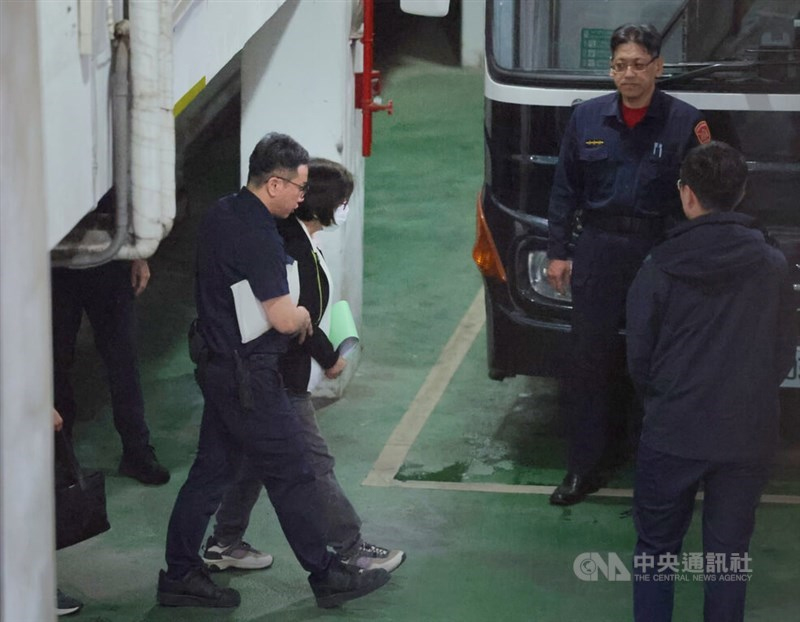In a significant escalation of Taiwan’s political tensions, the Taipei District Court on Friday approved a motion to detain Huang Lu Chin-ju (黃呂錦茹), the chair of the Kuomintang (KMT)’s Taipei chapter. The decision comes amid ongoing investigations into alleged forgeries of signatures used in recall petitions targeting ruling Democratic Progressive Party (DPP) lawmakers.
🧵 The Case So Far
The court’s reversal of its earlier April 18 decision—where it had rejected the prosecution’s request to detain Huang Lu—follows new evidence submitted by the Taipei District Prosecutors Office. According to both the prosecutors and the Taiwan High Court, this evidence includes:
- Witness testimonies
- Chat app conversation histories
- Potential misuse of personal data
The High Court concluded that Huang Lu’s involvement in the forgery scheme warranted reconsideration, prompting the District Court to approve a two-month incommunicado detention, citing concerns over possible evidence tampering and witness collusion.
🔎 Unpacking the Political Significance
The incident strikes at the heart of Taiwan’s volatile political climate, with accusations of judicial weaponization and political scapegoating flying across party lines.
1. KMT’s Response: “Political Persecution”
KMT Chairman Eric Chu (朱立倫), who personally led protests outside the Taipei District Prosecutors Office, sharply criticized the detainment. Labeling it a “judicial manipulation” orchestrated by the ruling DPP, he stated:
“This is a textbook case of political oppression meant to silence dissent.”
Chu also vowed full legal support for Huang Lu and rallied party members to protest in front of the Presidential Office, urging citizens to “defend democracy.”
2. DPP’s Counterpoint: “Rule of Law Must Prevail”
In contrast, DPP spokesperson Justin Wu (吳崢) rebutted the KMT’s claims, calling the recall petition investigation legitimate and grounded in evidence.
“It’s not about silencing opposition—it’s about maintaining electoral integrity. If the KMT can hold a massive protest in front of the Presidential Office, it only proves our democratic values remain intact.”
📊 Broader Implications
➤ Judicial Independence Under Scrutiny
The decision to detain a senior KMT official mid-investigation could embolden critics who question the neutrality of Taiwan’s legal system. At the same time, it raises valid concerns about abuse of recall mechanisms, originally designed to empower citizens but now potentially exploited for partisan warfare.
➤ Impacts on Upcoming Elections
With the 2025 elections drawing near, this case could serve as a litmus test for voter sentiments. Will the electorate view the KMT as a victim of ruling party oppression, or as a party caught red-handed manipulating democratic tools?
➤ Potential Legal Repercussions for Political Parties
Should charges be formally filed and convictions follow, this could lead to:
- Penalties under Taiwan’s Personal Data Protection Act
- Criminal charges for document forgery
- Heightened scrutiny of other KMT recall efforts across the island
🤔 FAQs
What is Huang Lu Chin-ju accused of?
She is suspected of participating in a scheme to submit forged signatures in petitions to recall DPP lawmakers and illegally accessing or misusing personal data.
Why was she detained after being released earlier?
New evidence—primarily digital communication logs and witness testimonies—prompted the Taiwan High Court to ask the District Court to reconsider its initial denial.
What does ‘incommunicado detention’ mean?
It means Huang Lu will be held without access to outside communication to prevent interference with the ongoing investigation.
What is the political response to her detention?
The KMT claims it’s political persecution by the DPP, while the DPP argues the process is lawful and evidence-based.
What are the possible legal consequences?
If found guilty, Huang Lu and others involved could face charges for forgery and violations under the Personal Data Protection Act.


